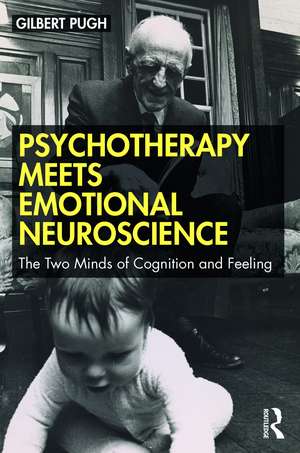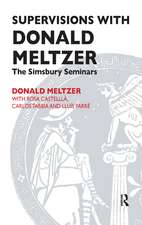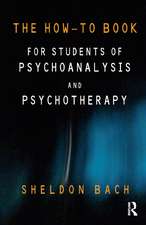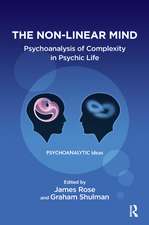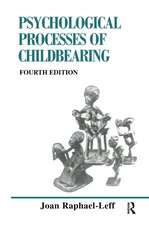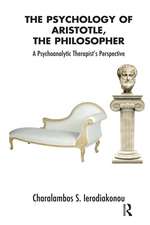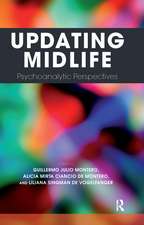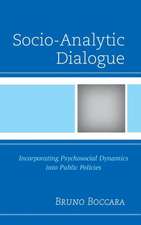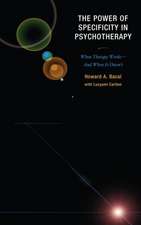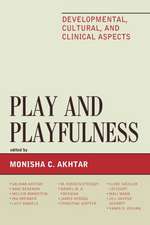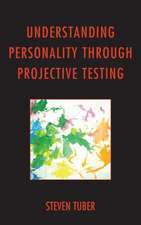Psychotherapy Meets Emotional Neuroscience: The Two Minds of Cognition and Feeling
Autor Gilbert Pughen Limba Engleză Paperback – 22 iul 2019
Psychotherapy Meets Emotional Neuroscience: The Two Minds of Cognition and Feeling introduces new insights from the neurosciences into the nature of our emotions and feelings, and argues for a more empathetic approach to psychotherapy as a result.
Respectful of Freud the neurologist and explorer of the mind, the book seeks to contextualise psychoanalytic theory with recent discoveries in how emotions are generated in the brain, as well as those around memory, to clarify key psychological processes such as projection and transference. It includes sketches of a number of influential analysts whose emphasis has been on a close, affective relationship with their patients - including Ferenczi, Kohut and Winnicott - and explains why, in the light of recent research, empathy is necessary for any effective psychotherapeutic relationship. There are also chapters on the use of drugs to complement psychotherapy, and how the free energy principle can explain brain functioning.
In an era when neuroscientific research has provided far-reaching discoveries into how our brains work, this clear-sighted, accessible overview will offer psychotherapists and psychoanalysts, whether practising or in training, a way to integrate these insights into their understanding of both their patients and themselves.
| Toate formatele și edițiile | Preț | Express |
|---|---|---|
| Paperback (1) | 313.77 lei 6-8 săpt. | |
| Taylor & Francis – 22 iul 2019 | 313.77 lei 6-8 săpt. | |
| Hardback (1) | 1095.75 lei 6-8 săpt. | |
| Taylor & Francis – 23 iul 2019 | 1095.75 lei 6-8 săpt. |
Preț: 313.77 lei
Preț vechi: 330.29 lei
-5% Nou
60.05€ • 62.61$ • 49.90£
Carte tipărită la comandă
Livrare economică 21 martie-04 aprilie
Specificații
ISBN-10: 0367333392
Pagini: 208
Ilustrații: 12 Halftones, black and white
Dimensiuni: 156 x 234 x 15 mm
Greutate: 0.31 kg
Ediția:1
Editura: Taylor & Francis
Colecția Routledge
Locul publicării:Oxford, United Kingdom
Public țintă
Postgraduate, Professional, and UndergraduateCuprins
Chapter One: Early Influences
Chapter Two: Some Background
Chapter Three: The Emotional Brain
Chapter Four: Projection
Chapter Five: Other Defences We Employ
Chapter Six: Transference and Countertransference
Chapter Seven: Memory
Chapter Eight: Localisation: What goes on where in the Brain?
Chapter Nine: The aversion to feelings
Chapter Ten: Drugs
Chapter Eleven: Free Energy
Chapter Twelve: The Cognitive Cortex no longer rules
Chapter Thirteen: Neuroscience: co-operation not incorporation
Notă biografică
Descriere
Psychotherapy Meets Emotional Neuroscience: The Two Minds of Cognition and Feeling introduces new insights from the neurosciences into the nature of our emotions and feelings, and argues for a more empathetic approach to psychotherapy as a result.
Respectful of Freud the neurologist and explorer of the mind, the book seeks to contextualise psychoanalytic theory with recent discoveries in how emotions are generated in the brain, as well as those around memory, to clarify key psychological processes such as projection and transference. It includes sketches of a number of influential analysts whose emphasis has been on a close, affective relationship with their patients - including Ferenczi, Kohut and Winnicott - and explains why, in the light of recent research, empathy is necessary for any effective psychotherapeutic relationship. There are also chapters on the use of drugs to complement psychotherapy, and how the free energy principle can explain brain functioning.
In an era when neuroscientific research has provided far-reaching discoveries into how our brains work, this clear-sighted, accessible overview will offer psychotherapists and psychoanalysts, whether practising or in training, a way to integrate these insights into their understanding of both their patients and themselves.
